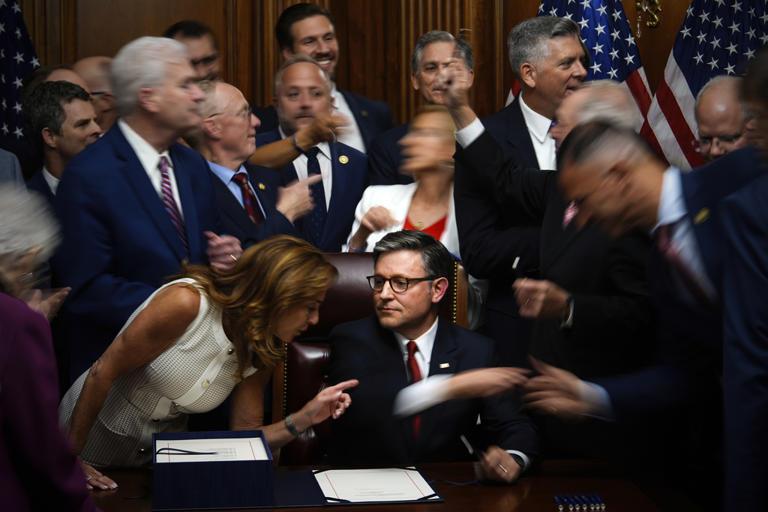RMCommunityCalendar
Events happening today
-
ALL
DAY
03 July 2026
This event begins 07/03/2021 and repeats every year forever
Alligado 07/03/2021
IN Honor of Sharknado, what about Alligado?
Yesterday, July 3rd, in 1843, an alligator was reported to have dropped from the sky after a storm picked it up. What about a prequel to Sharknado, Alligado!!!
What say you?
ARTICLE
CHARLESTON, SC – According to the National Weather Service Charleston office, on July 2, 1843, there were reports of an alligator falling from the sky during a thunderstorm in downtown Charleston.
A search for the event, turned up an old newspaper clipping from the Time-Picayune in New Orleans. The Time-Picayune republished an article which originally appeared in “The Charleston Mercury” a local paper founded by U.S. Representative Henry L. Pinckney.
The article described a strong thunderstorm that developed on a very hot July Sunday. St. Paul’s Church was reportedly struck by lightning but not harmed. No one was reported dead following the storm, but an alligator appeared at the corner of Wentworth and Anson street in downtown Charleston after the storm had cleared. And while no one saw the alligator actually fall from the sky, the writer states that “and as he couldn’t have got there any other way, it was decided unanimously that he rained down.” That and the look of wonder and bewilderment on the alligator’s face led to idea that he had come from the sky.
The working theory is the gator could have been picked up by a waterspout the formed over a near by river or creek and was dropped on Anson Street as the spout dissipated. But since no one saw the gator fall from the sky, it could also be he just got lost in the blinding rain.
https://www.wbtw.com/news/alligator-rains-down-from-the-sky-according-to-1843-charleston-report/#:~:text=CHARLESTON%2C%20SC%20%E2%80%93%20According%20to%20the%20National%20Weather,newspaper%20clipping%20from%20the%20Time-Picayune%20in%20New%20Orleans.
Original Post
https://aalbc.com/tc/profile/6477-richardmurray/?status=1564&type=status
RMCommunityCalendar 0 Comments · 0 Reviews
03 July 2026
This event begins 07/03/2021 and repeats every year forever
The Black Screenwriter Cometh 07/03/2021
In my experience, less than ten percent of the black writers I have talked to throughout my lifetime have read or written a screenplay. The question is why?
I do not know exactly, I can not give a roadmap but I have ideas.
I will go back... when I was a kid, multiple times my parents took me to see plays. August Wilson, Black theaters around harlem. They never took me to see a white play, defined as a play written by a white person. Sequentially, I saw black art not merely from one perspective. This parallels my constant rant on black fantasy, which sums up to , I was raised with black fantasy so I didn't see King Arthur or Beowulf or disney princesses or saturday morning cartoons as places that needed black fantasy cause I had it in the books in my home.
I have the century cycle as part of my book collection. Why did I mention that? Many black people who say they love august wilson don't have his stageplays. August Wilson wrote the plays, in the same way Shakespeare wrote his and yes as a kid I thought of August wilson whenever we read shakespeare in class. My parents have two trains running and some others as singles, which i read during those early years. I have twilight zone scripts, which are,for me, invaluable in seeing technique for writing scripts/screenplays.
Now my personal life means nothing to answer the initial question.
I restate, why do less than ten percent of the black writers I talked to throughout my life, offline or online, not have read or written a screenplay?
I know black writers offline who won awards for their work, made revenue from their work. I have made connections with black writers online who have varying levels of financial return or awards to their quality.
I myself prefer writing poetry more than anything else.
But, I have written screenplays, read them.
Why have so few of my peers?
While I ranted/provided background composing this I see two points that are undeniable.
1.Screenplays are not finished products and black people in the arts in the USA, don't like that. Ownership is a big cultural idea in the black community in the USA. It stems from centuries of enslavement and nearly to centuries of abuse after enslavement. when an artwork is not finished, it is not owned. And no screenplay is ever finished, it is merely the template, no matter how elegant, for the video recorded interpretation by humans, what is commonly called acting.
2.Screenplays structure is a thin lattice over anything goes sections. Meaning, outside some basics, the monolog or multilogs , the definition of scenes are open in their definition for screenplays. Education for black people in the USA after the war between the states, ending around ten years, was wholly funded by whites and mostly trade or skill based in definition. Why ? Cause white religious organizations funded the schools and wanted the bible to be the sole literary device for the black community. On the other side , in the same time period you had the reading schools were all age groups were allowed to learn to read. But, these schools were not interested in forming or creating a alphabet or literature for black people's various dialects of english. These schools were purposed to teach english as accepted by the white churches that funded most of them, who desired the british english. Remember, during that time most white people were still in a literary love affair with britain. Sequentially in the USA, the black communities first educated group, comprehend most black people did not go to school of any kind, had a very rigid sense of literature or writing. This was not , let the gullah/geehce/creole/delta communities create a literature to be the foundation for the future. This was, learn queen's english, read the bible. Rigidity was deeply set in how literature was learned in the black community. Tuskeegee or Howard are probably the most well known black colleges and the former was a trade school and the latter a seminary. NEither was a place where black literature or literature in itself was open to philosophical debate. Thus in modernity, the legacies of those educational cultures exist in the black community. When you hear a black say, as I have, that their parents didn't want them to be musicians or artists, or their parents wanted them to have a better work ethic. That philosophy to learning comes from the trade school, the religious school. Which is the founding place for all black fraternitieis or sororities. What does this have to do with the structure of a screenplay. LEarning for black people in the past 160 years, circa, is constrained. With poetry, whose forms all have rules, or prose, that has accepted structures, it is easy for the black educated populace to adhere to those rules. But, with a screenplay, you are not in error if you don't do it like another, and that simple truth, is uncomfortable for many black writers, who like to be right. If you are going to play the game, you have to know its rules and abide by them, but what happens when the rules are open for interpretation. Can you imagine, can you accept that?
from
Richard Murray
Original Post
https://aalbc.com/tc/profile/6477-richardmurray/?status=1565&type=status
RMCommunityCalendar 0 Comments · 0 Reviews
03 July 2026
This event begins 07/03/2025 and repeats every year forever
Here is a summary, full video reading, link to the complete text as a pdf, text block
FULL VIDEO READING
FULL PDF TEXT 940 pages, get a cup of coffee
https://www.budget.senate.gov/imo/media/doc/the_one_big_beautiful_bill_act.pdf
if the government deletes you can find it on my public storage
https://1drv.ms/b/c/ea9004809c2729bb/EbZDmeqlfntGiGn1E02IYZEBOO1r6iFbHDCHZ9IBK91SuA?e=EfDQLO
Full Text as a video, you can stop and start or scroll back and forth
SUMMARY- biased from the Associated Press
What's in Trump's big bill that passed Congress and will soon become law Story by KEVIN FREKING and LISA MASCARO WASHINGTON (AP) — Republicans muscled President Donald Trump's tax and spending cut bill through the House on Thursday, the final step necessary to get the bill to his desk by the GOP's self-imposed deadline of July 4th. At nearly 900 pages, the legislation is a sprawling collection of tax breaks, spending cuts and other Republican priorities, including new money for national defense and deportations. Democrats united against the legislation, but were powerless to stop it as long as Republicans stayed united. The Senate passed the bill, with Vice President JD Vance casting the tiebreaking vote. The House passed an earlier iteration of the bill in May with just one vote to spare. It passed the final version 218-214. Here's the latest on what's in the bill and when some of its provisions go into effect. Republicans say the bill is crucial because there would be a massive tax increase after December when tax breaks from Trump's first term expire. The legislation contains about $4.5 trillion in tax cuts. The existing tax rates and brackets would become permanent under the bill, solidifying the tax cuts approved in Trump's first term. It temporarily would add new tax deductions on tip, overtime and auto loans. There's also a $6,000 deduction for older adults who earn no more than $75,000 a year, a nod to his pledge to end taxes on Social Security benefits. It would boost the $2,000 child tax credit to $2,200. Millions of families at lower income levels would not get the full credit. A cap on state and local deductions, called SALT, would quadruple to $40,000 for five years. It's a provision important to New York and other high tax states, though the House wanted it to last for 10 years. There are scores of business-related tax cuts, including allowing businesses to immediately write off 100% of the cost of equipment and research. Proponents say this will boost economic growth. The wealthiest households would see a $12,000 increase from the legislation, and the bill would cost the poorest people $1,600 a year, mainly due to reductions in Medicaid and food aid, according to the nonpartisan Congressional Budget Office analysis of the House's version. The bill would provide some $350 billion for Trump's border and national security agenda, including for the U.S.-Mexico border wall and for 100,000 migrant detention facility beds, as he aims to fulfill his promise of the largest mass deportation operation in U.S. history. Money would go for hiring 10,000 new Immigration and Customs Enforcement officers, with $10,000 signing bonuses and a surge of Border Patrol officers, as well. The goal is to deport some 1 million people per year. To help pay for it, immigrants would face various new fees, including when seeking asylum protections. For the Pentagon, the bill would provide billions for ship building, munitions systems, and quality of life measures for servicemen and women, as well as $25 billion for the development of the Golden Dome missile defense system. The Defense Department would have $1 billion for border security. To help partly offset the lost tax revenue and new spending, Republicans aim to cut back on Medicaid and food assistance for people below the poverty line. Republicans argue they are trying to rightsize the safety net programs for the population they were initially designed to serve, mainly pregnant women, the disabled and children, and root out what they describe as waste, fraud and abuse. The package includes new 80-hour-a-month work requirements for many adults receiving Medicaid and food stamps, including older people up to age 65. Parents of children 14 and older would have to meet the program’s work requirements. There's also a proposed new $35 co-payment that can be charged to patients using Medicaid services. More than 71 million people rely on Medicaid, which expanded under Obama's Affordable Care Act, and 40 million use the Supplemental Nutrition Assistance Program. Most already work, according to analysts. The Congressional Budget Office estimates that 11.8 million more Americans would become uninsured by 2034 if the bill became law and 3 million more would not qualify for food stamps, also known as SNAP benefits. Republicans are looking to have states pick up some of the cost for SNAP benefits. Currently, the federal government funds all benefit costs. Under the bill, states beginning in 2028 will be required to contribute a set percentage of those costs if their payment error rate exceeds 6%. Payment errors include both underpayments and overpayments. But the Senate bill temporarily delays the start date of that cost-sharing for states with the highest SNAP error rates. Alaska has the highest error rate in the nation at nearly 25%, according to Department of Agriculture data. Sen. Lisa Murkowski, R-Alaska, had fought for the exception. She was a decisive vote in getting the bill through the Senate. Republicans are proposing to dramatically roll back tax breaks designed to boost clean energy projects fueled by renewable sources such as energy and wind. The tax breaks were a central component of President Joe Biden's 2022 landmark bill focused on addressing climate change and lowering health care costs. Democratic Oregon Sen. Ron Wyden went so far as to call the GOP provisions a “death sentence for America’s wind and solar industries and an inevitable hike in utility bills.” A tax break for people who buy new or used electric vehicles would expire on Sept. 30 of this year, instead of at the end of 2032 under current law. Meanwhile, a tax credit for the production of critical materials will be expanded to include metallurgical coal used in steelmaking. A number of extra provisions reflect other GOP priorities. The bill creates a new children's savings program, called Trump Accounts, with a potential $1,000 deposit from the Treasury. The Senate provided $40 million to establish Trump’s long-sought “National Garden of American Heroes.” There's a new excise tax on university endowments and a new tax on remittances, or transfers of money that people in the U.S. send abroad. The tax is equal to 1% of the transfer. A $200 tax on gun silencers and short-barreled rifles and shotguns was eliminated. One provision bars for one year Medicaid payments to family planning providers that provide abortions, namely Planned Parenthood. Another section expands the Radiation Exposure Compensation Act, a hard-fought provision from GOP Sen. Josh Hawley of Missouri, for those impacted by nuclear development and testing. Billions would go for the Artemis moon mission and for the exploration of Mars, while $88 million is earmarked for a pandemic response accountability committee. Additionally, a provision would increase the nation's debt limit, by $5 trillion, to allow continued borrowing to pay already accrued bills. The Senate overwhelmingly revolted against a proposal meant to deter states from regulating artificial intelligence. Republican governors across the country asked for the moratorium to be removed and the Senate voted to do so with a resounding 99-1 vote. A provision was thrown in at the final hours that will provide $10 billion annually to rural hospitals for five years, or $50 billion in total. The Senate bill had originally provided $25 billion for the program, but that number was upped to win over holdout GOP senators and a coalition of House Republicans warning that reduced Medicaid provider taxes would hurt rural hospitals. The amended bill also stripped out a new tax on wind and solar projects that use a certain percentage of components from China. Altogether, the Congressional Budget Office projects that the bill would increase federal deficits over the next 10 years by nearly $3.3 trillion from 2025 to 2034. Or not, depending on how one does the math. Senate Republicans are proposing a unique strategy of not counting the existing tax breaks as a new cost because those breaks are already “current policy.” Republican senators say the Senate Budget Committee chairman has the authority to set the baseline for the preferred approach. Under the alternative Senate GOP view, the bill would reduce deficits by almost half a trillion dollars over the coming decade, the CBO said. Democrats say this is “magic math” that obscures the true costs of the tax breaks. Some nonpartisan groups worried about the country's fiscal trajectory are siding with Democrats in that regard. The Committee for a Responsible Federal Budget says Senate Republicans were employing an “accounting gimmick that would make Enron executives blush.”
URL
https://www.msn.com/en-us/news/politics/whats-in-trumps-big-bill-that-passed-congress-and-will-soon-become-law/ar-AA1HVdHv?ocid=BingNewsSerp
RMCommunityCalendar 0 Comments · 0 Reviews






